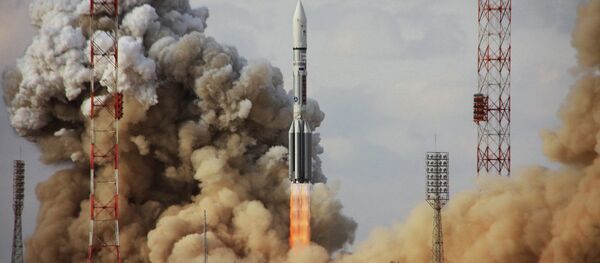Commenting on the recent accident involving a Proton-M rocket carrying a Mexican satellite, Rogozin noted that much work remains to be done, stating that a big part of the problem is the rocketry industry's 'old thinking' in the way it does things.
Rogozin emphasized that "if in the aviation industry we cannot imagine the creation of new aircraft without digital modeling, at Roscosmos, design offices are still working on a drawing table, pencil in hand."
He also noted that the industry's approach to finding the causes of failures and accidents is based "on intuition" and common sense, rather than the use of mathematical situational models. The deputy prime minister noted that this outdated approach is made especially difficult when the rockets fall into the ocean or burn up in the atmosphere, which makes investigation of physical evidence impossible.
"There are figures linked to fraud and theft, but these figures are, first of all, an order of magnitude lower, although they too are extremely disturbing and have assisted in the degradation of the economic situation among a number of space enterprises. And secondly, for all these figures, criminal cases have been opened and arrests are being made."
Earlier this month, citing successful reforms in the defense industry, which once faced a similar crisis, and at Rosatom, Russia's atomic energy company, Rogozin expressed his confidence "that Roscosmos colleagues will improve their industry too."





